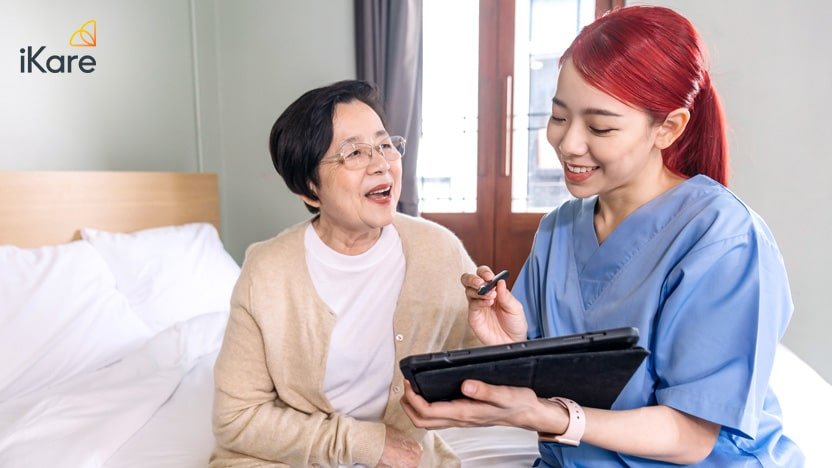
During times of illness or ongoing medical care, effective communication between families and professionals providing Home nursing care is vital for the patient’s well-being. This fosters a collaborative environment where valuable insights about the patient’s health and preferences can be shared, leading to better quality of care. In this article, we delve into the key benefits of open communication, highlighting its role in ensuring a more effective and personalised care experience for patients and their loved ones.
Provide valuable insights about the patient’s health and preferences

Open communication fosters a valuable exchange of critical information between families and caregivers. Family members hold a unique understanding of the patient’s personality, habits, and daily routines, offering invaluable insights to the care providers. Armed with this knowledge, caregivers can customise their approach and care plans to cater precisely to the patient’s needs. Furthermore, understanding and listening to the patient’s preferences regarding food, activities, and social interactions to enable a smoother care journey. This collaborative approach empowers families, assuring them that their input is esteemed and incorporated into the overall care process.
Open communication promotes better care and can prevent misunderstandings

Miscommunications or misinterpretations of instructions can lead to errors in administering medications or treatments, potentially compromising the patient’s health. Through open communication, families can express any concerns they may have, seek clarifications, and provide real-time updates on the patient’s condition. In response, those specialising in home care or home nursing services can address these concerns promptly, ensuring that the care provided aligns with the family’s expectations and, most importantly, meets the patient’s needs.
Establish trust between the home care nurse and family
Trust is a crucial element in the relationship between care providers and families. Open communication fosters a sense of transparency and empathy, which is vital in building trust. Families feel more comfortable expressing their observations, worries, and preferences, knowing that their input is valued and respected. Care providers, in turn, can provide regular updates on the patient’s progress, share medical insights, and offer guidance on the care process. As a result, a robust partnership is formed between caregivers and families, creating a supportive and empathetic environment that prioritises the patient’s well-being and recovery.
Accurate observation in a natural setting

One of the unique advantages of home nursing care is the ability to observe the patient in their natural environment. Patients may exhibit different behaviours and responses to treatments when they are at home compared to a clinical setting. Through open communication, families can share their observations with home nurses, enabling them to gain more accurate insights into the patient’s well-being. This information can be relayed to the patient’s doctors, bridging the gap between the home care setting and the medical team.
Learn more: 3 Ways to Prevent Caregiver Burnout When Caring for a Dementia Patient | iKare
Open communication between families and caregivers is an essential component, offering numerous benefits that contribute to the well-being and recovery of the patient. Together, families as well as caregivers can form a strong partnership dedicated to providing compassionate and personalised care, ensuring the best possible outcomes for the patient’s health and quality of life.
Ready to take the first step towards exceptional home care for your loved ones? From private nurses to home caregiver services, discover how iKare’s team will prioritise your loved one’s well-being with a caring and tailored approach. Your loved one’s well-being is our top priority – contact us today to find out more.

